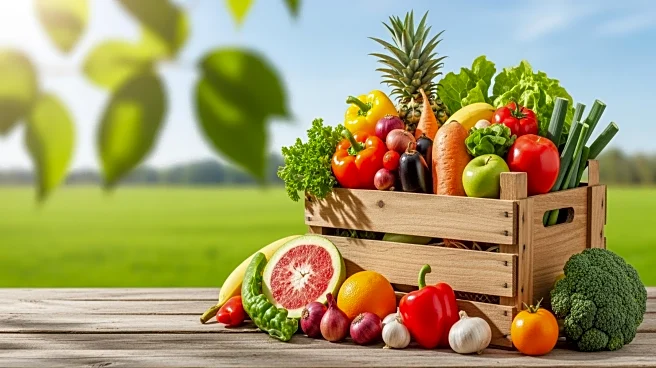What's Happening?
President Trump has announced the reduction of tariffs on several agricultural imports, including coffee, cocoa, bananas, and beef. This decision comes amid political pressure due to rising grocery prices.
The tariff cuts aim to alleviate the financial burden on consumers, who have faced increased costs due to previous tariff policies. The exemptions also cover fruits like tomatoes and avocados, as well as tea and spices. This move marks a shift in Trump's approach, as he previously advocated for tariffs to protect U.S. industries.
Why It's Important?
The reduction in tariffs is significant as it addresses consumer concerns over high grocery prices, which have been exacerbated by inflation. By lowering tariffs, the administration seeks to reduce costs for essential food items, potentially easing household budgets. This policy change could influence public perception of Trump's economic strategies, especially as grocery prices have become a critical issue for voters.
What's Next?
The tariff reductions are expected to impact grocery prices positively, although other factors like global supply shortages may continue to affect costs. The administration's focus on trade agreements with Latin American countries could further open markets for U.S. exports, potentially boosting economic ties and trade balance.
Beyond the Headlines
This policy shift may lead to broader discussions on the effectiveness of tariffs as a tool for economic protection versus their impact on consumer prices. The decision could also influence future trade negotiations and strategies, as the administration balances domestic economic concerns with international trade relations.










